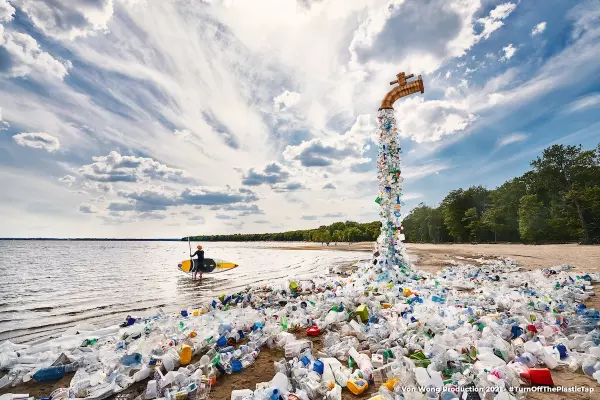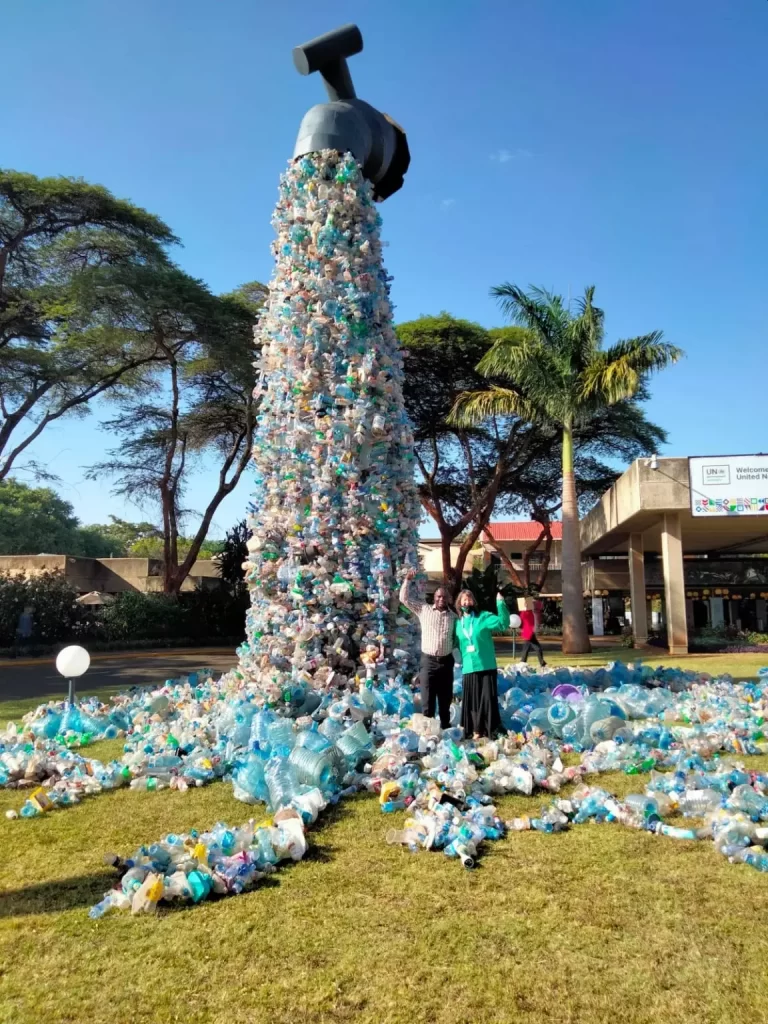On Ash Wednesday we say the words ‘Turn from sin and believe the good news’
We have turned from plastic pollution
Over the last few days, nations have highlighted so many impacts of plastic pollution. There are the health impacts when sewerage systems become blocked by plastic waste and the treatment plants don’t work and overflow. There are the economic costs – when plastic tangles in boats’ propellers and the engine is damaged , or tourists stop coming to a particular site. There are the climate change impacts of the production of virgin plastic (currently six percent of global emissions come from plastic). And there are the devastating effects on marine life from the greatest whale who dies of starvation because her stomach is full of plastic, to the tiniest plankton who becomes polluted.
We are believing the good news
This is no easy fix, there is a long way as the details of the treaty need to be worked out, especially how to enforce the legally binding treaty that all the Ministers of Environment or their representatives agreed upon.
But the good news is that we are beginning the process of reducing the production of virgin plastic, of getting unrecyclable plastics out of the stream, of agreeing on international labelling codes. We have agreed that the pollution must pay, not the taxpayer (this is called extended producer responsibility).
And for faith communities we are excited because the role of informal waste pickers has been recognized as important stakeholders in the treaty. No more will governments be able to pretend that the miniscule amounts that people can earn on recycling are ‘job creation’. Subsidies must be paid to create living wages and safe working conditions.
Anglicans are part of the good news
Anglicans are involved in combatting plastic on so many levels. Churches are organising local clean ups, and river and ocean clean ups. The Renew the Elsies River group have put in litter booms to stop plastic from flowing to the ocean. The Anglican Communion Environmental Network celebrates Lent by reducing our plastic usage in the Fast for the Earth. The Diocese of Lesotho Mother’s Union make products such as hats and bags by crocheting with plastic bags. The Diocese of Eswatini has a bring your own bag campaign. In the Church of Uganda they have partnered with Eco Brix to make building blocks from heated plastic with sand.
Archbishop Ole Sapit preached at the All Saints Cathedral in Nairobi on Ash Wednesday on the text of “Restore to me the joy of your salvation and renew a right Spirit within me” (Psalm 51:12)
The Diocese of Harare, Zimbabwe had a campaign where clean ups of illegal dumping sites would be followed by planting of succulents and trees to renew what had become desecrated and their slogan was the 4 Rs:
“Reduce, Reuse, Recycle – Rejoice!”
Amen
Rev Dr Rachel Mash
Find our more here: https://www.unep.org/news-and-stories/press-release/historic-day-campaign-beat-plastic-pollution-nations-commit-develop
The resolution can be found here Plastic Pollution resolution
Tags: A 'PARIS' AGREEMENT FOR PLASTIC POLLUTION



